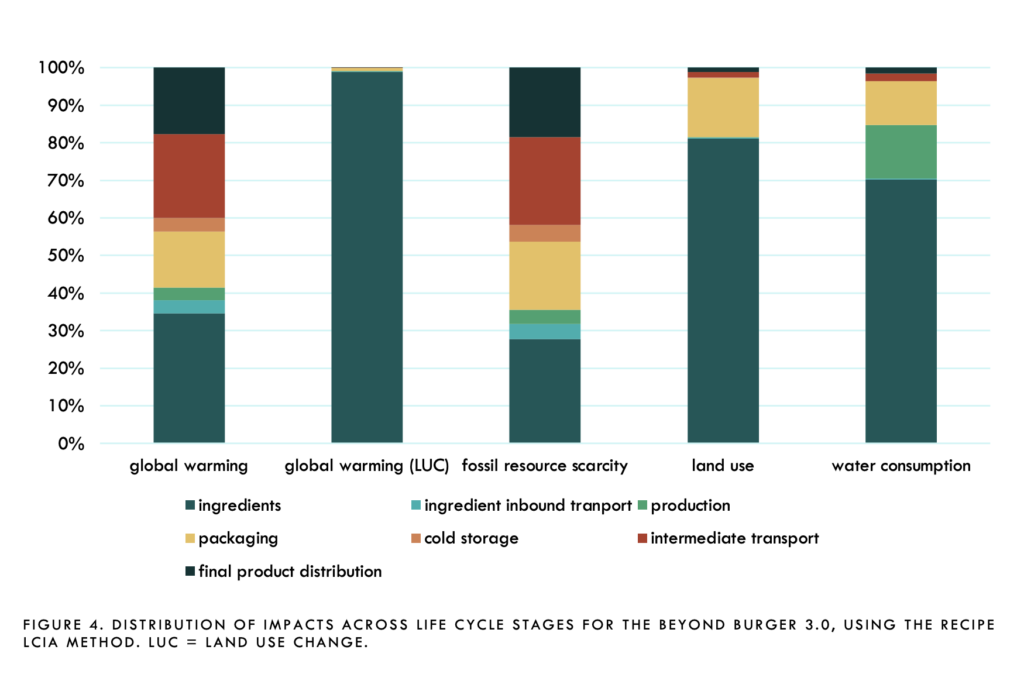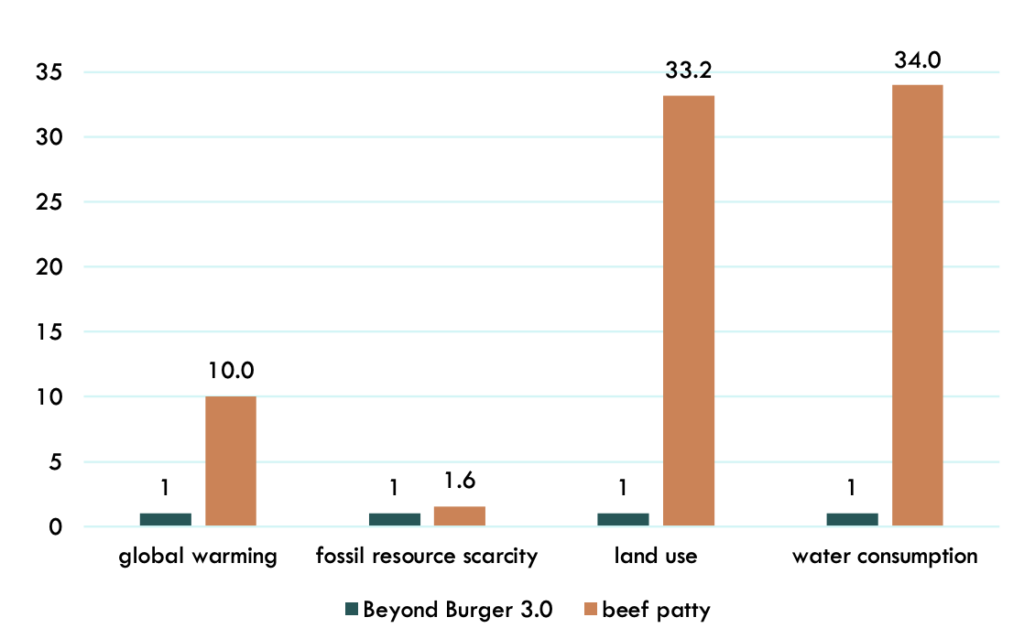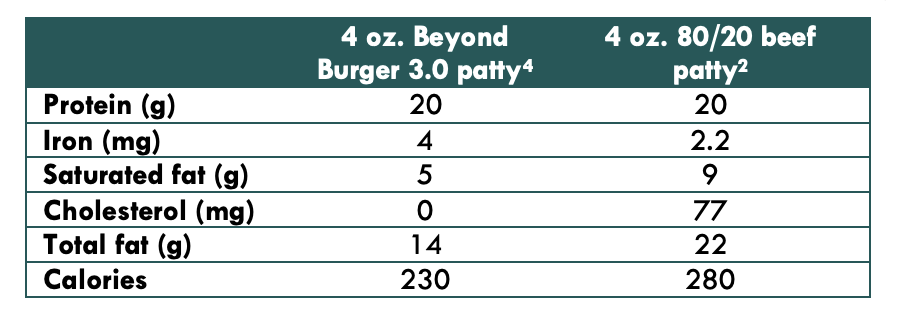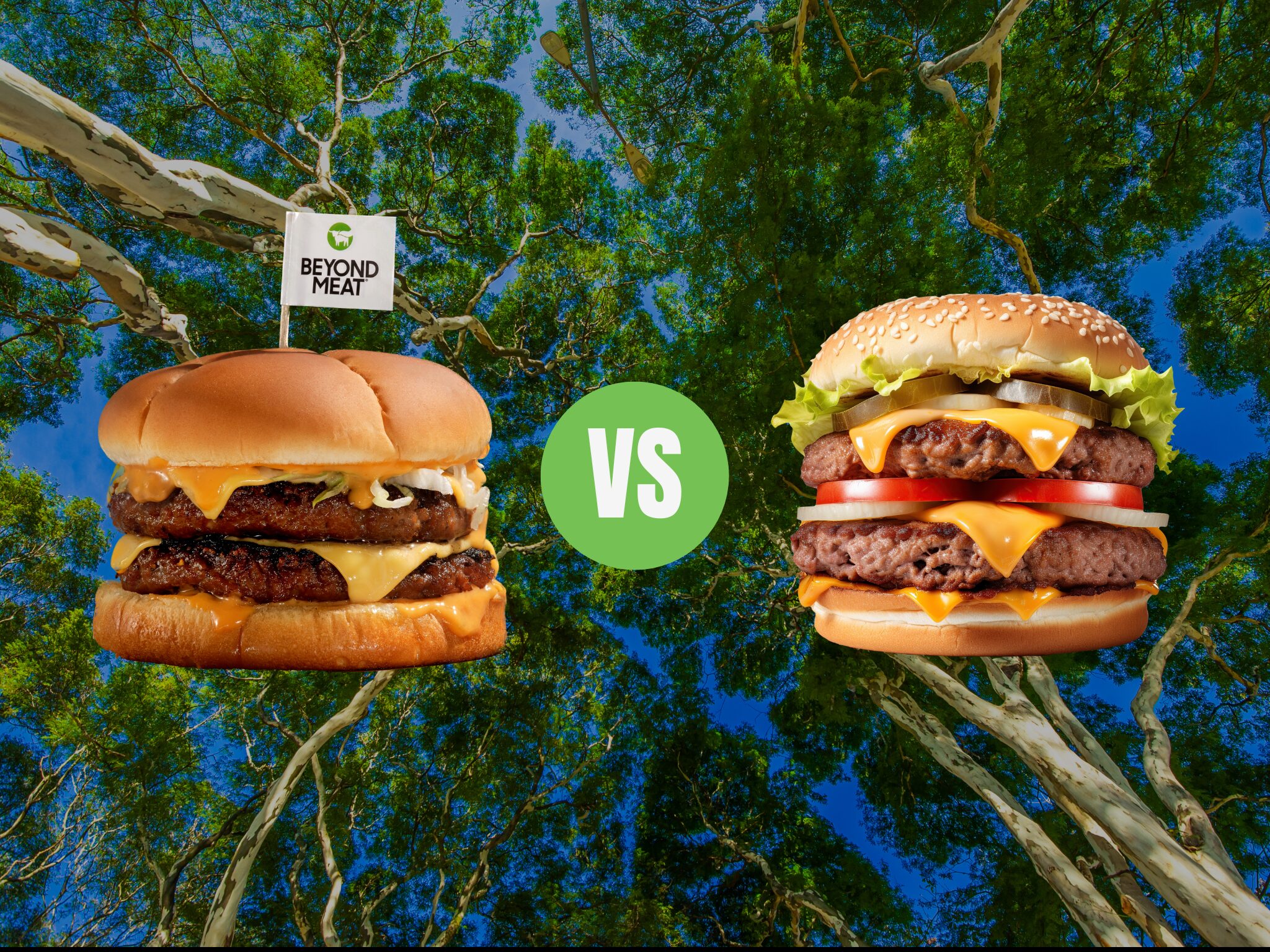Beyond Meat’s New LCA Reveals the Climate Benefits of Its Burger Over Beef
5 Mins Read
How sustainable is plant-based meat? US giant Beyond Meat answered this question in its latest life-cycle assessment, comparing the climate credentials of its burger with an animal-based beef patty.
In 2018, Beyond Meat commissioned the University of Michigan’s Centre for Sustainable Systems to carry out a life-cycle assessment (LCA) of its original Beyond Burger (launched in 2015), which found that the plant-based product produces 90% fewer greenhouse gas emissions, requires 46% less energy, has over 99% less impact on water scarcity, and 93% less impact on land use, compared to beef.
The Beyond Burger has gone through two more iterations since then, culminating in version 3.0, which was released in 2021. Now, it has released a second LCA – conducted by Dutch research firm Blonk Consultants and compliant with ISO standards – comparing this product to a conventional beef patty. Here’s what it found.
Beyond Meat vs beef: the environmental impact

Based on data from 2022, the new Beyond Meat LCA focused on global warming impact, land use, water consumption, and non-renewable fossil resource scarcity. Calculating the effect of different production components, it found that refrigerated transport – including both intermediary components and final distribution – is the biggest contributor to the burger’s GHG emissions (40%) and fossil resource use (42%).
Ingredient production is the other prominent factor, responsible for 35% of emissions and 25% of non-renewable energy use. This dominates the rest of the metrics too, responsible for 81% of land use, almost all of the global warming impact if incorporating land use change, and 70% of water consumption.
Within these ingredients, it’s the pea protein (which makes up 16% of the Beyond Burger patty) that has the highest impact, contributing to 11% of GHG emissions, 9% of fossil resource use, and 43% of land use. Its impact on water consumption, however, is much lower at 7% – here, a natural flavour proxy leads the way with 20%, followed by rice protein (18%).
The third major component of Beyond Burger’s climate impact is packaging, which accounts for 14% of its global warming impact, 17% of fossil resource scarcity, 16% of land use, and 12% of water consumption.

When compared to a standard 80/20 quarter-pound beef patty produced in the US, the LCA found that Beyond Meat’s burger generates 90% fewer GHG emissions, requires 37% non-renewable energy, uses 97% less land, and consumes 97% less water. If incorporating land use change, even with the ingredient production being the main driver for the plant-based patty, the Beyond Burger has 89% less global warming impact. These results are comparable to the 2018 LCA of the first Beyond Meat burger.
Beyond Meat CEO outlines climate strategy in ESG report
While LCAs are focused on the environmental impact of products, Beyond Meat’s document also highlighted the nutritional aspects of its burger versus conventional beef, revealing how both contain an equal amount of protein (20g per 4oz patty), but the plant-based meat has more iron, less saturated and total fat, fewer calories, and, of course, zero cholesterol. It brings to mind the company’s recent focus on health, with its latest ad campaign highlighting the heart-healthy certification received by its Beyond Steak analogue.

The positive results are welcome after a rocky year for the alt-meat giant, which has seen year-on-year sales fall (by 8.3% as of Q3) and revenue forecast being cut multiple times. Despite arresting a revenue slide with a small bump in Q2, it dropped again in Q3. It led to the company announcing job cuts affecting 8% of its staff (about 65 employees), which follows the layoffs of over 200 employees last year. All this reflected a wider decline in the plant-based meat industry, where investors have lost faith and sales have suffered.
Alongside the LCA, Beyond Meat published its 2022 environmental, social and corporate governance (ESG) report as well, outlining its approach to ESG; product quality, safety, innovation, health and packaging; environmental impact; supply chain responsibility; and people, culture and governance.
In a letter kicking off the report, Beyond Meat founder and CEO Ethan Brown iterated the importance of the producer’s climate impact, calling it “a reason for being” instead of a secondary factor. He laid out a two-part strategy for mitigating climate change: “One, focus on bringing down methane quickly by transitioning away from animal-based to plant-based meats as part of a shift to plant-based diets. Two, sequester carbon on lands freed up by the transition to plant-based meats and a plant-based food system.”

He added: “Do this now, while working on everything else – energy, transport, steel, cement, and other sources of greenhouse gases. Note that the decision is not all-or-nothing – with each reduction in livestock emissions and each conversion of acreage to sequestration, we can make progress.”
And in words that could apply as much to Beyond Meat’s financial predicament as they do to the climate crisis, Brown said: “It is understandable to feel overwhelmed in face of the magnitude of this global challenge. However, defeat is not inevitable and there is much we can do today.”




